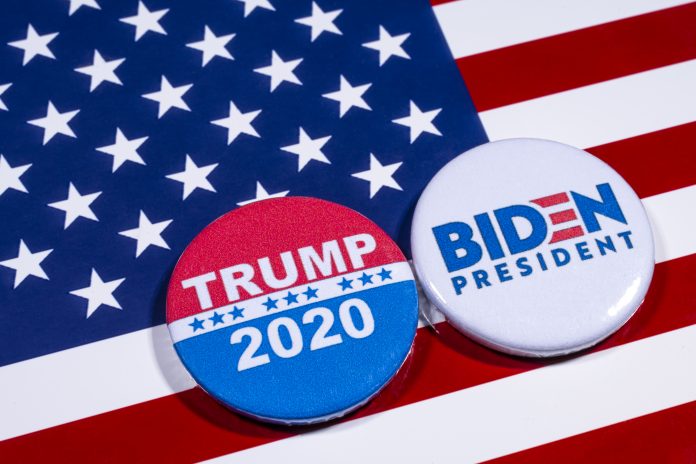As the final Presidential debate happens, the US is fast approaching the final days of the campaign – we are running a US Election survey to find out who you think is better for the economy
The next president will be expected to oversee the rollout of vaccines and further economic measures, spearhead foreign policy in an unprecedented global economy and address the movement against racial inequality. The question of regulating social media giants, the deteriorating relationship with China and a looming trade deal with the UK are also crucial issues that will be in the hands of the next Commander-in-Chief.
With the impact of COVID-19 coursing through every State, the country is dealing with 8.4 million cases and 222,000 deaths. The vaccine appears to be a no-show until atleast 2021, and workers across the country find their lives significantly changed. According to the US Labor Department, there were 787,000 claims for unemployment last week. The US economy is still down 10.7 million jobs less than it had in February 2020.
We are running a poll
At Open Access Government, we are asking our readers what you want from your next leader. Do you have a candidate in mind or are you one of the elusive swing voters, waiting for more information to decide? What do you think is the most urgent policy priority for the country right now?
If you have a few minutes and you are a US reader, take the US Election survey here.
We’ll be running this until the 26th October, so if you want a say about how the economy of the US should be decided, this is your chance. We look forward to writing about your thoughts.
The stimulus package
For the last few weeks, Speaker of the House Nancy Pelosi and Secretary of the Treasury Steven Mnuchin have been working to push a stimulus package that is roughly estimated to be worth 2.2 trillion dollars. Currently, access to food, housing, jobs and education remain the fiercest priorities for politicians, who are facing substantial pressure from those they represent. President Donald Trump dropped from budget negotiations and currently the bill is still going through the “final” stages.
This package is intended to support health measures such as a cohesive testing strategy and create better access to childcare. Though President Trump backed away from the Pelosi-package, he stated that he wants to put even more money than 2.2 trillion into the stimulus: “It’s very simple. I want to do it even bigger than the Democrats. Now, not every Republican agrees with me, but they will.”
With this impasse, it is unlikely that the bill will be negotiated and passed before 3 November.
Meanwhile at the White House, I spoke with the president’s economic adviser, Larry Kudlow. He said the president has worked hard on the bill.
According to the President’s economic adviser, Larry Kudlow, the negotiations have become highly philosophical. Speaking to the BBC, he said: “There’s a million – not a million – there’s a number of political and ideological points in that that have nothing to do with Covid.”
“Once it became a mammoth bill with a lot of ideological asks in it, that’s what hurt.”












